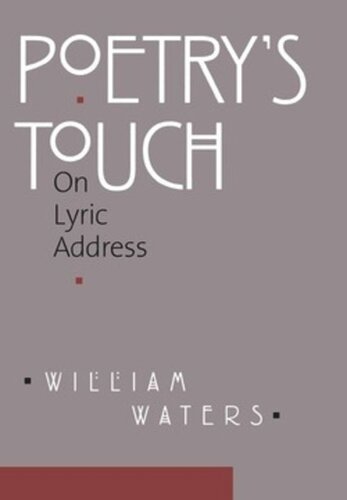

Most ebook files are in PDF format, so you can easily read them using various software such as Foxit Reader or directly on the Google Chrome browser.
Some ebook files are released by publishers in other formats such as .awz, .mobi, .epub, .fb2, etc. You may need to install specific software to read these formats on mobile/PC, such as Calibre.
Please read the tutorial at this link: https://ebookbell.com/faq
We offer FREE conversion to the popular formats you request; however, this may take some time. Therefore, right after payment, please email us, and we will try to provide the service as quickly as possible.
For some exceptional file formats or broken links (if any), please refrain from opening any disputes. Instead, email us first, and we will try to assist within a maximum of 6 hours.
EbookBell Team

4.1
100 reviewsTo whom does a poem speak? Do poems really communicate with those they address? Is reading poems like overhearing? Like intimate conversation? Like performing a script? William Waters pursues these questions by closely reading a selection of poems that say "you" to a human being: to the reader, to the beloved, or to the dead. In any account of reading lyric poetry, Waters argues, there will be places where the participant roles of speaker, intended hearer, and bystander melt together or away; these are moments of wonder.Looking both at poetry's "you" and at how readers encounter it, Waters asserts that poetic address shows literature pressing for a close relation with those into whose hands it may fall. What is at stake for us as readers and critics is our ability to acknowledge the claims made on us by the works of art with which we engage. In second-person poems, in a poem's touch, we may come to see why poetry matters to us, and how we, in turn, come to feel answerable to it. Poetry's Touch takes as a central thread the poetry of Rainer Maria Rilke, a writer whose work is unusually self-conscious about poetic address. The book also draws examples from a gamut of European and American poems, ranging from archaic Greek inscriptions to Keats, Dickinson, and Ashbery.